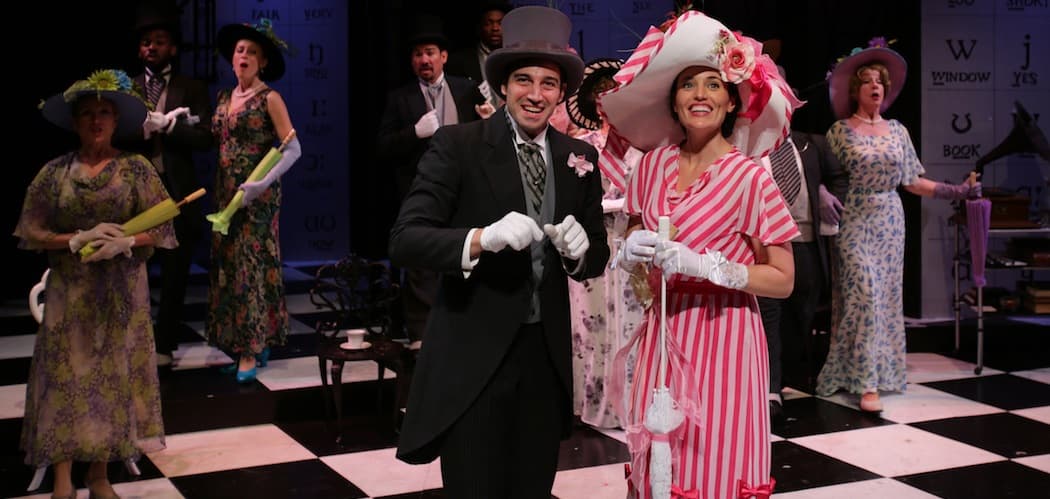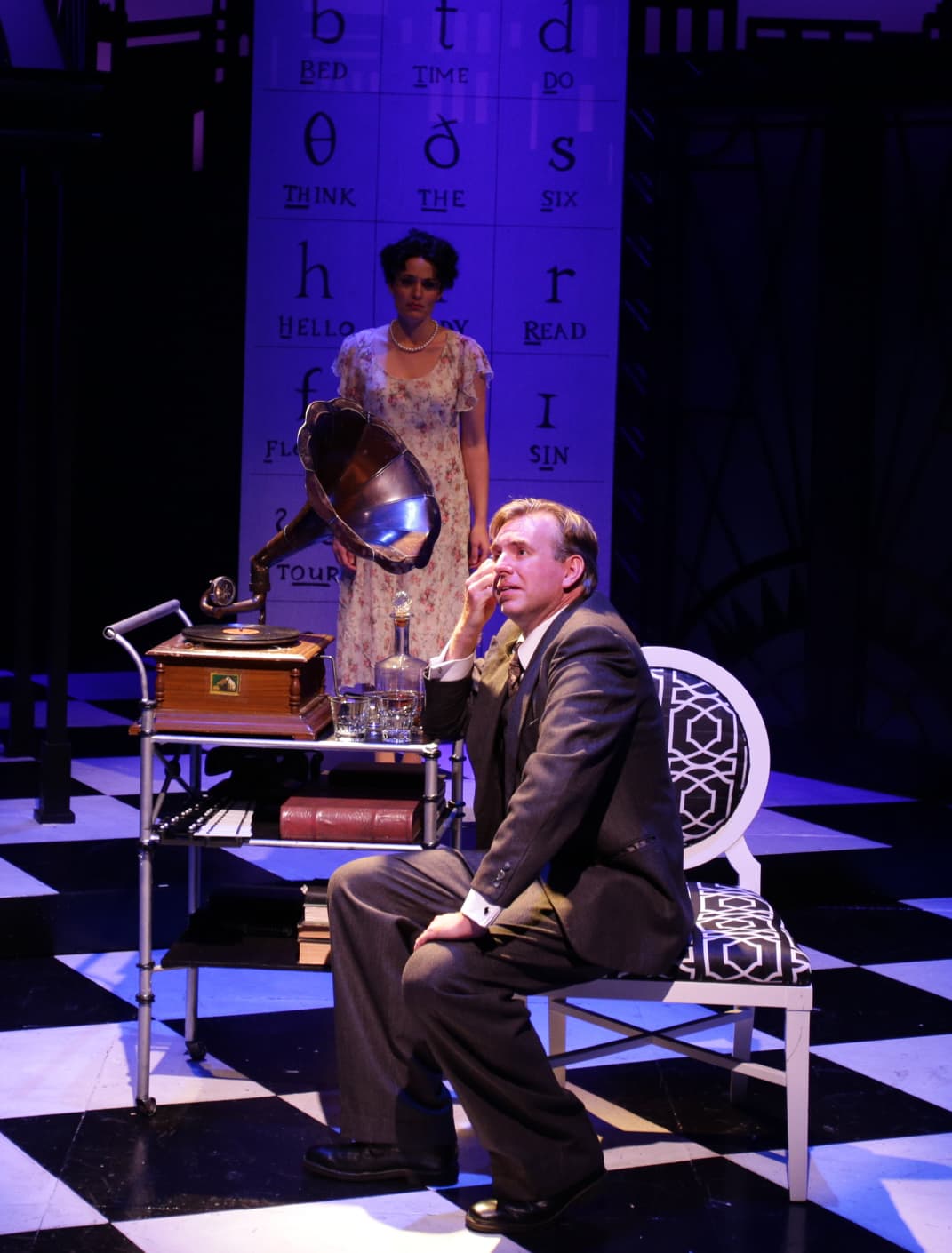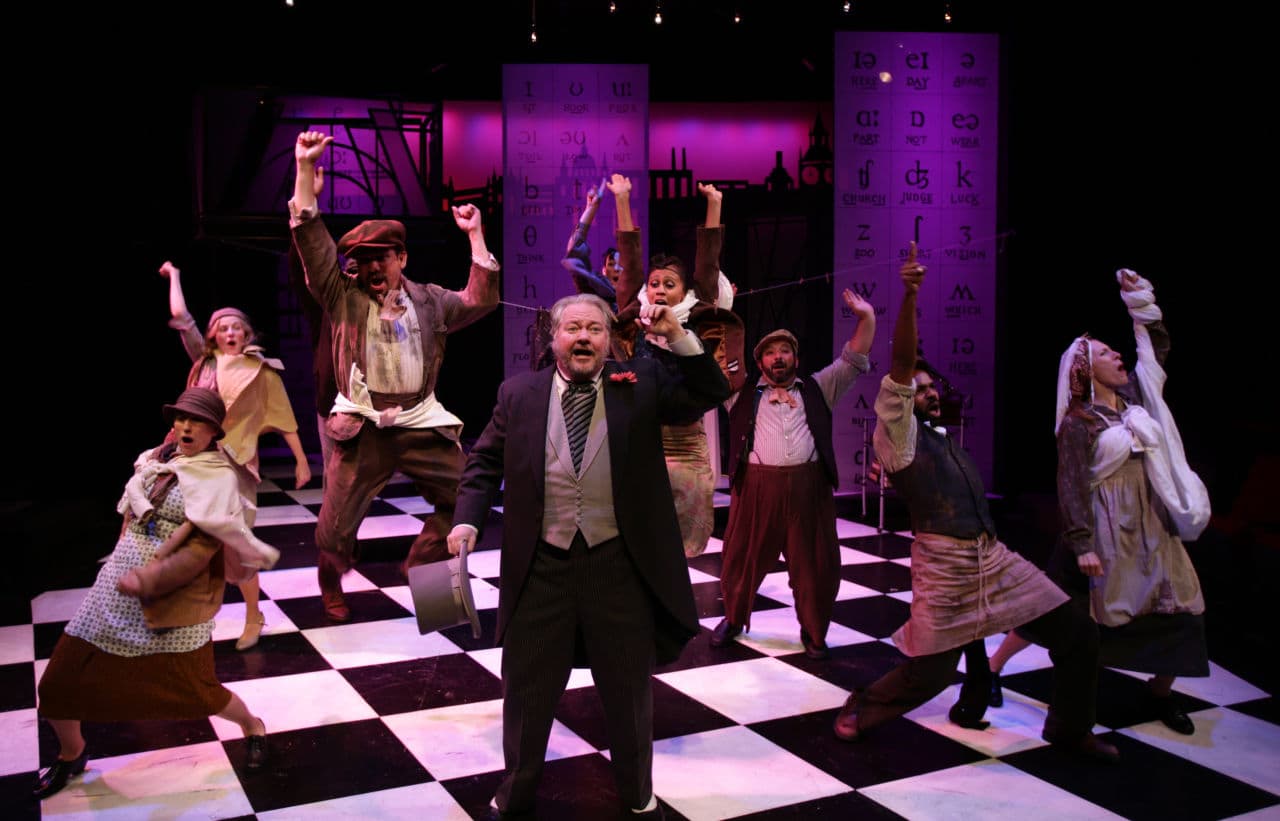Advertisement
Isn't It Loverly? A Powerhouse 'My Fair Lady' At The Lyric

Henry Higgins is a jerk. There’s no getting around it, and it’s easy for any production of “My Fair Lady” to choke on that bone.
The conventions of musical comedy call for the male and female leads to end up together, but in this case such a union would seem to undermine the triumphant arc of heroine Eliza Doolittle, whom we see evolve from an object to a subject—from the “baggage” her boorish tutor Professor Higgins views her as into an actual person with her own agency, ready to leave him behind. (Of course, the best option that even this proto-feminist piece can see as available to her is the suggestion she may go and marry some other fellow.)
Part of the immense charm of the production at Lyric Stage of Boston running through Oct. 11 is that Christopher Chew finds a way to make Higgins the overbearing solipsist that he is, but also kinda, sorta likable. Though Higgins views Eliza as an entity that exists only in its relationship to him—“What does it matter?” he responds with genuine confusion when she wonders what is to become of her—Chew brings a layer of earnest boyishness that makes Higgins’ habitual cruelty seem to spring from good-faith obliviousness and a deep passion for his work. He’s still an awful match for Eliza (who specifies that she wants him to be more “friendly-like,” not a lover), and though the show’s famously ambiguous ending leaves their future as an open question, director Scott Edmiston finds moments to suggest that love is in the air. Chew successfully makes this possibility seem a shade less objectionable than it otherwise could.

The endpoint of Eliza and Higgins’ journey has changed as this material evolved from George Bernard Shaw’s 1913 text to its 1938 film adaptation—the directors of each iteration slanted the final moments toward happy endings to which the author objected— and then on to this musical adaptation, which stormed Broadway in 1956 and was made into a blockbuster film eight years later. One problem with the resulting work is that we never actually see Eliza being irresistibly charming, we’re just assured by credible parties that she is.
But there’s so very much that works well in the Lyric’s powerhouse of a production. Chew’s Higgins is matched by the Eliza of Jennifer Ellis, who exhibits great technical skill while enacting the impoverished flower girl’s transformation into a social climber who can pull off a deadpan impression of a haughty aristocrat. Her facial contortions as Eliza struggles to ditch her Cockney accent are priceless. Following her performance in "Far From Heaven" at Speakeasy Stage Company last season (also under Edmiston's directon), this is likely to prove a breakout role for Ellis.
Remo Airaldi is very good as Higgins’ colleague Colonel Pickering, who bets his fellow phonetics scholar that he can’t transform Eliza’s streetwise manner (and that famously acrid accent) into the very picture of a duchess. Tony Castellanos excels as Zoltan Karpathy, the former pupil of Higgins who ratifies Eliza’s triumph by loudly concluding that her manners are so perfect, she’s surely a Hungarian princess trying to pass as an Englishwoman.
As Eliza’s ne’er do well father, Alfred, J.T. Turner nails his big moments with the hummable “With A Little Bit Of Luck” and “Get Me To The Church On Time.” Jared Troilo too stands out, playing the young aristocrat Freddy as a dashing suitor rather than an inconsequential fop; the choice makes him seem almost too much of an appropriate match for Eliza, given where the story goes. Troilo unfurls what sounds to be a classically trained voice in “On The Street Where You Live,” surely recruiting many converts to Team Freddy.

Yes, this “My Fair Lady” positively swells with excellent work. With help from David Connolly’s inventive choreography, Edmiston makes very good use of an 11-person ensemble. They double and triple as street urchins, household servants and upper-crust socialites. Perhaps allowing for costume changes, Edmiston leaves Chew, Turner and Ellis alone onstage for key solo numbers, but this enhances the intimacy as an unamplified, three-person orchestra does great justice to Frederick Loewe’s music. Gail Astrid Buckley’s array of gorgeously realized costumes amounts to a tour de force, from the gentlemen’s situational appropriate tuxedos and morning suits to a lovely parade of summer dresses for the ladies’ visit to the Ascot racecourse.
Edmiston sets the show in the Great Depression to emphasize its underlying class issues, but the choice makes slender impact aside from requiring a full supply of newsboy caps; perhaps a contemporary setting would tease out its political content more pointedly. Still, he’s crafted a theatrical experience here that proves even an old warhorse like “My Fair Lady” can make another impressive lap around the track.
Jeremy D. Goodwin contributes regularly to The Boston Globe, The ARTery (where he is also an editor), Berkshire Magazine and many other publications. See more of his work here. Follow him on Twitter here.